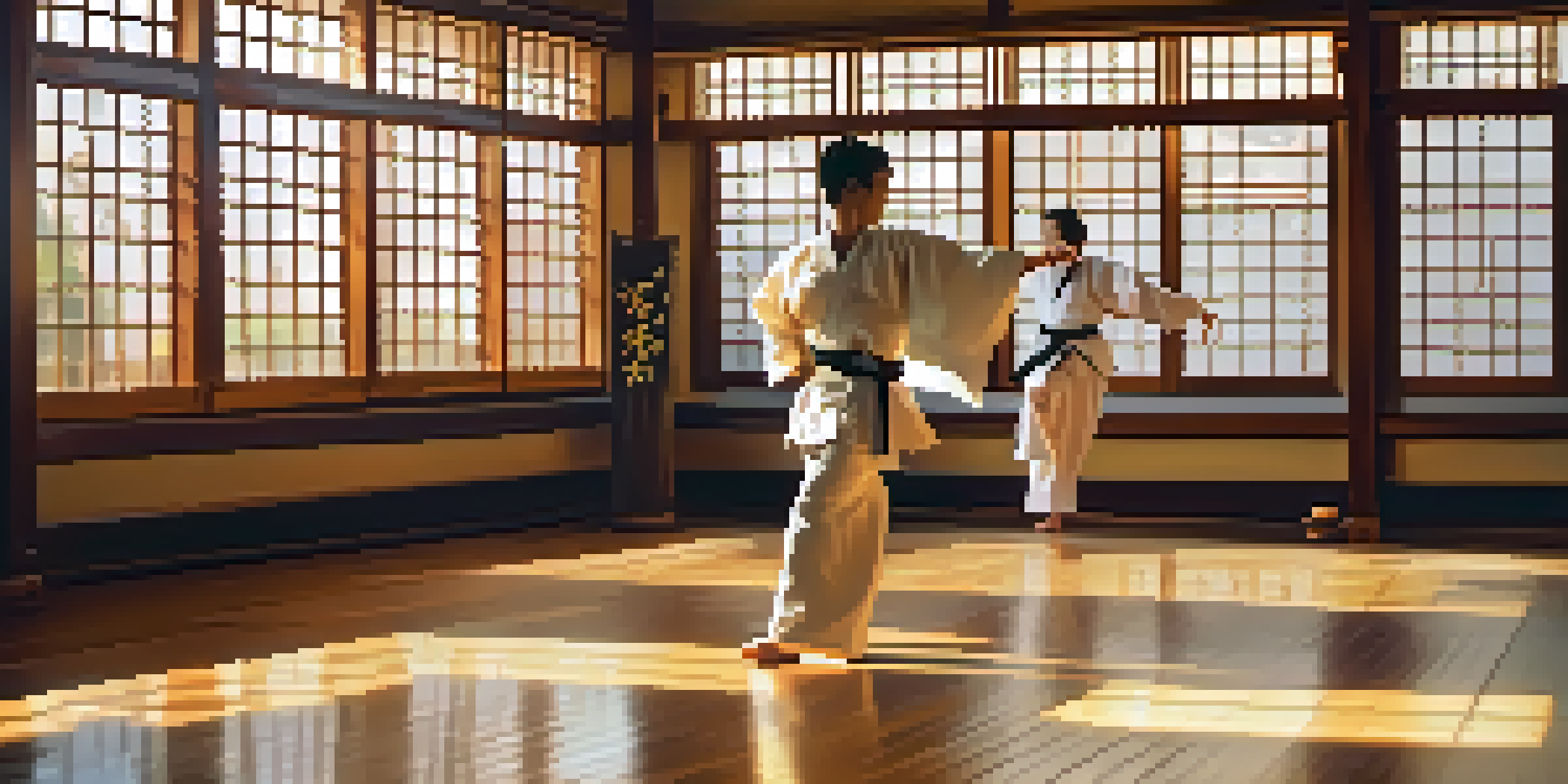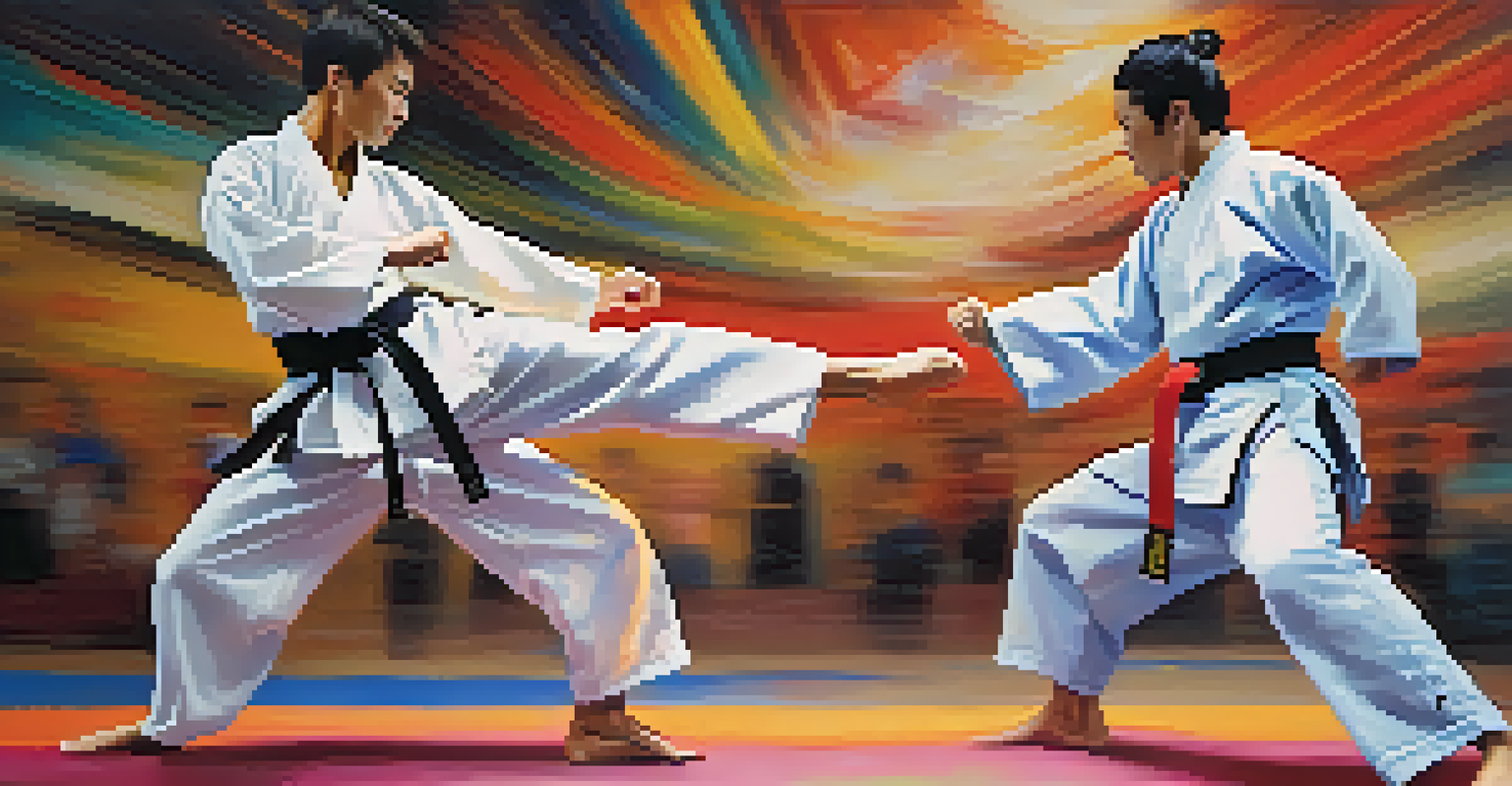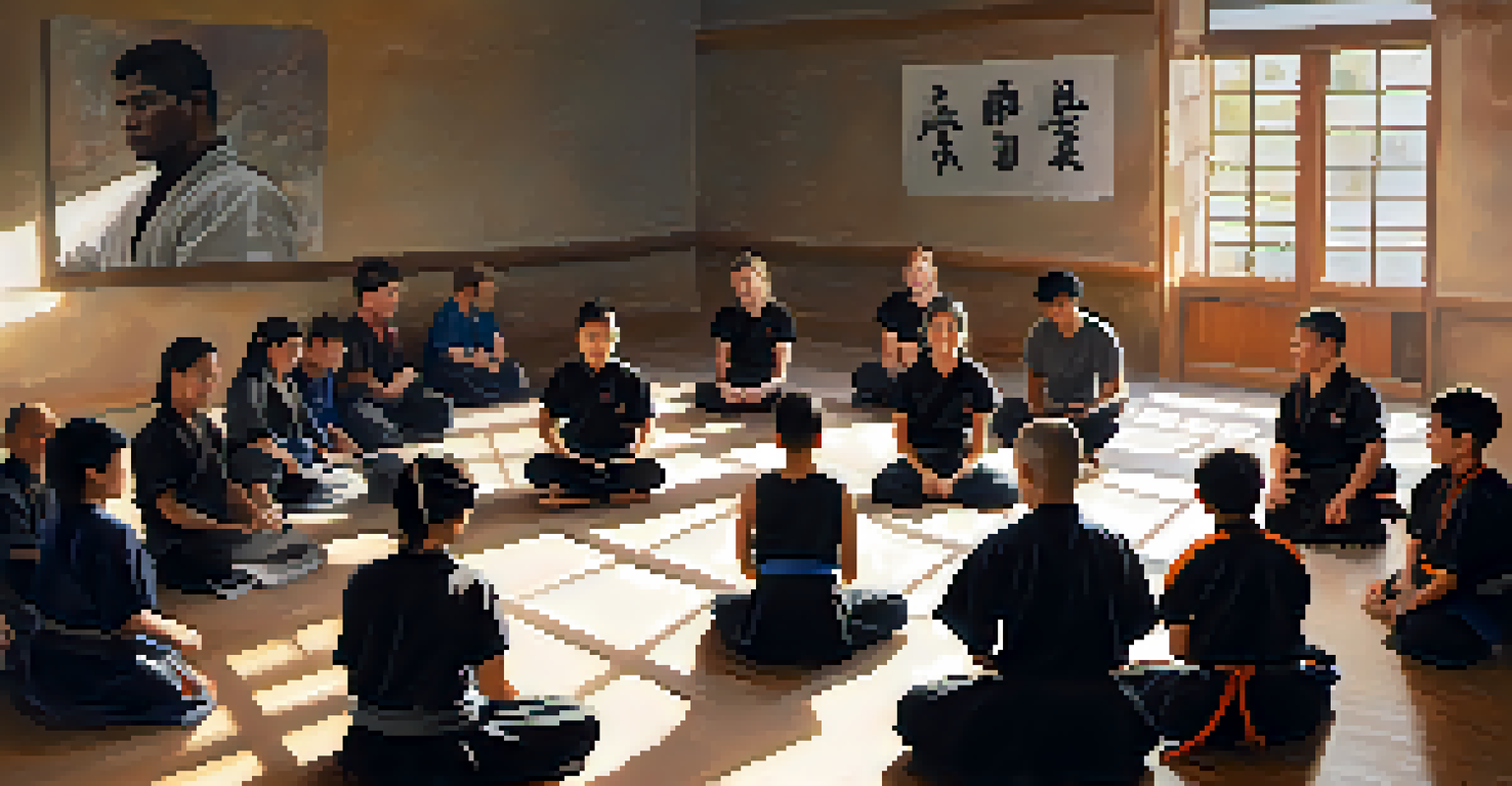The Link Between Martial Arts and Emotional Regulation Skills

Martial Arts: More Than Just Physical Training
Many people see martial arts primarily as a form of physical exercise, focusing on techniques and self-defense. However, it's also a powerful tool for emotional development. By engaging in martial arts, practitioners learn to channel their energy and emotions in constructive ways, paving the path for better emotional regulation.
The ultimate aim of martial arts is not having to use them.
The discipline required in martial arts encourages individuals to confront their feelings rather than suppress them. Each training session often involves scenarios that require emotional responses, allowing students to practice managing their reactions in a controlled environment. This balance of physical and emotional training is what sets martial arts apart from other fitness regimes.
Furthermore, the emphasis on respect, humility, and self-control in martial arts cultivates a mindset that values emotional intelligence. As practitioners advance in their skills, they not only grow stronger physically but also develop a greater awareness of their emotional states and how to navigate them.
The Role of Mindfulness in Martial Arts
Mindfulness, the practice of being present in the moment, plays a crucial role in martial arts training. During training, practitioners are often taught to focus their minds on their movements and breathing, which can enhance emotional awareness. This focus helps individuals become more attuned to their emotional triggers and responses.

By regularly practicing mindfulness, martial artists learn to observe their feelings without judgment. This skill is invaluable, as it allows them to respond to emotions thoughtfully rather than react impulsively. For example, a practitioner might feel frustration during a challenging drill but learns to acknowledge that feeling and push through it calmly.
Martial Arts Cultivates Emotional Growth
Practicing martial arts helps individuals channel their emotions constructively, promoting better emotional regulation and intelligence.
The incorporation of mindfulness techniques can lead to greater emotional resilience. Over time, martial artists find that they can apply this mindfulness beyond the dojo, leading to improved emotional regulation in everyday life.
Building Confidence Through Practice
One of the most significant benefits of martial arts is the boost in self-confidence it provides. As practitioners learn new moves and techniques, they gain a sense of accomplishment that positively impacts their self-esteem. This newfound confidence can help individuals better manage their emotions when faced with challenges outside the dojo.
Martial arts are not about the physical strength, but about the strength of the mind and the spirit.
For instance, someone who has trained in martial arts may feel more empowered to express their feelings assertively in difficult conversations. They develop a belief in their abilities, which translates to a greater willingness to confront emotional situations head-on rather than avoiding them.
Moreover, this confidence helps reduce anxiety and fear, which often exacerbate emotional dysregulation. As practitioners become more comfortable with themselves, they navigate their emotions with increased ease, promoting a healthier emotional landscape.
The Importance of Community and Support
Martial arts often foster a strong sense of community, which plays a vital role in emotional regulation. Being part of a supportive group allows practitioners to share their experiences and feelings, creating a safe space for emotional expression. This supportive environment reinforces the idea that it's okay to feel and discuss emotions.
In many dojos, students are encouraged to work together and support one another, whether through sparring or sharing insights after a class. This collaboration builds trust and camaraderie, which can be incredibly beneficial for emotional health. Having others who understand and empathize with your struggles can make a world of difference.
Mindfulness Enhances Emotional Awareness
Incorporating mindfulness techniques during training allows martial artists to observe their feelings without judgment, fostering emotional resilience.
Additionally, the bonds formed in martial arts can provide a solid support network for individuals dealing with emotional challenges. When practitioners face tough times, they often turn to their martial arts community for guidance and encouragement, enhancing their ability to regulate emotions effectively.
Stress Relief and Emotional Balance
Engaging in martial arts is an excellent way to relieve stress, which directly impacts emotional regulation. Physical activity releases endorphins, the body's natural stress relievers, leading to improved mood and emotional balance. Regular practice helps individuals manage their stress levels, which is crucial for emotional well-being.
As stress decreases, individuals often find it easier to handle their emotions. For example, someone who practices martial arts may feel less overwhelmed by daily challenges and more equipped to deal with frustration or anger when it arises. This proactive approach to managing stress contributes to overall emotional resilience.
Moreover, martial arts training often involves intense focus, which can distract from daily worries and anxieties. This immersion in practice allows individuals to find mental clarity and emotional stability, ultimately enhancing their emotional regulation skills.
Emotional Awareness Through Sparring and Techniques
Sparring in martial arts is not just about physical competition; it's an opportunity to explore emotional dynamics as well. During sparring, practitioners confront their fears and insecurities in a controlled setting, which can help them understand their emotional responses better. This experience fosters emotional awareness, a key component of effective emotional regulation.
As individuals spar, they learn to recognize feelings of fear, excitement, or frustration and can practice techniques to manage those emotions. For example, if a practitioner feels overwhelmed during a spar, they can apply breathing techniques learned in class to regain composure. This practice reinforces the connection between physical activity and emotional management.
Community Supports Emotional Health
The strong sense of community in martial arts provides a safe space for emotional expression, contributing to better emotional management.
Over time, these experiences in sparring contribute to a deeper understanding of oneself. Practitioners become more adept at identifying emotional triggers and developing strategies to respond appropriately, thus enhancing their overall emotional regulation.
Long-Term Benefits for Emotional Health
The emotional regulation skills developed through martial arts can have long-lasting effects. Many practitioners find that the strategies they learn in the dojo carry over into their personal and professional lives. This transfer of skills can lead to improved relationships, better conflict resolution, and enhanced overall emotional health.
Furthermore, the lessons of discipline, focus, and resilience learned in martial arts create a foundation for lifelong emotional well-being. Individuals often report feeling more balanced and in control of their emotions, even years after they stop training. It's a testament to the profound impact martial arts can have on emotional regulation.

In essence, martial arts offers a holistic approach to emotional health, combining physical, mental, and emotional training. This integrated practice empowers individuals to navigate their emotions with skill and confidence, fostering a healthier, more fulfilling life.